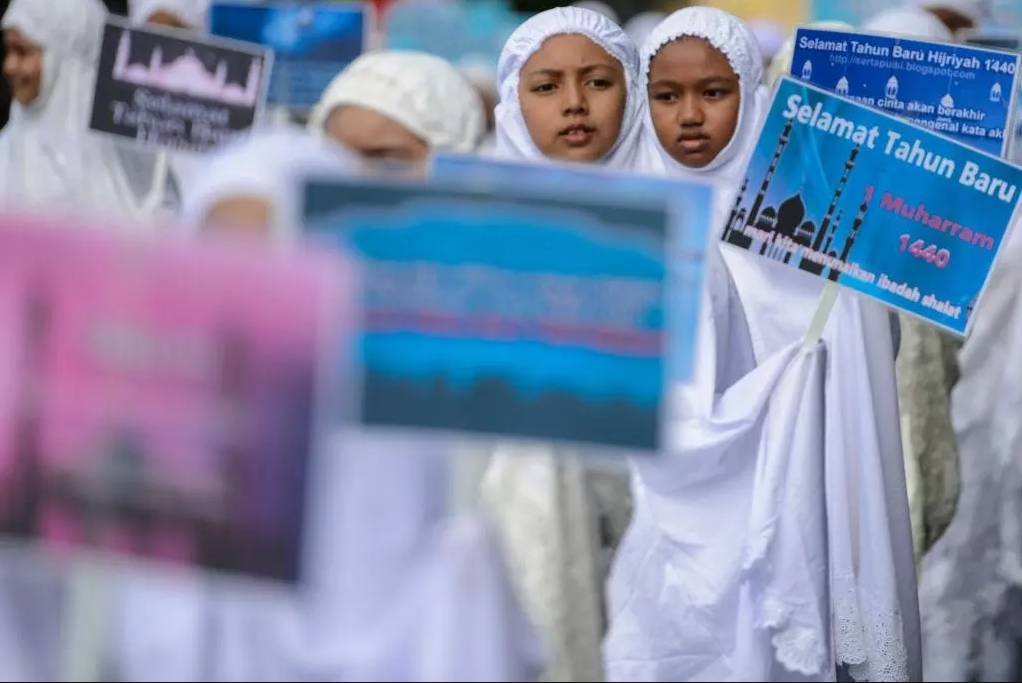Muslims across the world recognize the start of the Islamic New Year on Tuesday, marking the first day of the year 1440 of the Hijri calendar.
Hijri New Year is not as well known or as widely celebrated as Eid al-Adha, which marks the culmination of the annual hajj pilgrimage in Mecca, Saudi Arabia. But it is still a significant day for Islam’s 1.8 billion adherents. Almost 3.5 million Muslims live in the U.S., meaning many Americans will be celebrating along with other believers around the world.
So what is the Islamic New Year and what significance does it hold for Muslims? Here are five things to know about the religious holiday.
1. When is Hijri New Year?
The first day of the Islamic New Year and the month of Muharram is known as Al-Hijra. Each year, the date changes on the Gregorian calendar, which is the commonly adopted calendar that Americans and much of the world adheres to. The Islamic calendar is based on a 30-year cycle with 11 leap years of 355 days and 19 years of just 354 days, compared to the 366 and 365 respectively of the Gregorian calendar.
Last year, the Hijri New Year fell on September 21, and this year it takes place on September 11.
2. How is it celebrated?
While many Muslims make resolutions and spend time with family to mark the new year, just as others would on January 1, there is a major difference to how the holiday is commemorated by the two major sects of Islam, Shiites and Sunnis.
3. How do Shiites commemorate the day?
Shiites actually start the new year with 10 days of mourning to remember the slaying of Prophet Mohammed’s first cousin Ali and his only grandson Hussein Ibn Ali, who they see as the rightful caliphs to succeed their prophet. These killings, which took place in 680 C.E., marked the historic split between Shiites and Sunnis. Today, devout Shiites spend the first 10 days of the Islamic new year fasting and mourning in the lead up to another holiday called Ashoura.
4. What about Sunnis?
For Sunnis, the new year is a low-key holiday during which they spend time with family, visit the mosque to pray and focus on gratitude. In many countries with a majority or large Muslim populations, the day is also a public holiday when businesses close and government offices shut down.
5. When did the Hijri calendar start?
Although Arab tribes used a related calendar before the Prophet Muhammad, the Hijri calendar was retrospectively started based off the year 622 C.E. During that year, Muhammad and his followers journeyed from Mecca to Medina so their new movement of believers could worship freely without persecution.
This article originally appeared on newsweek.com








